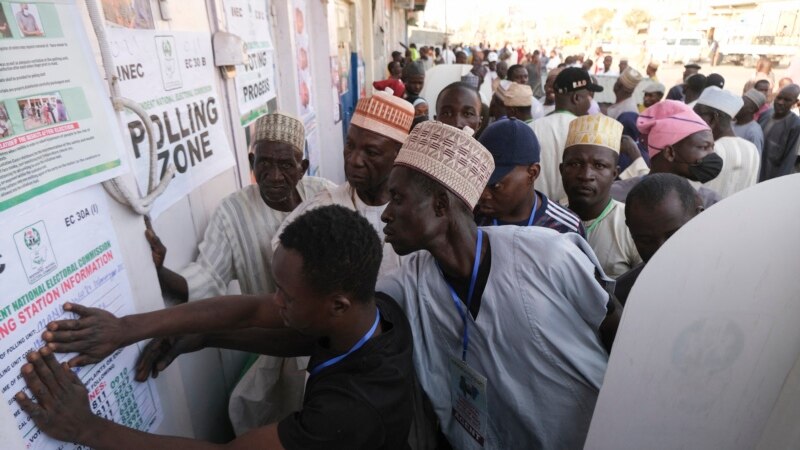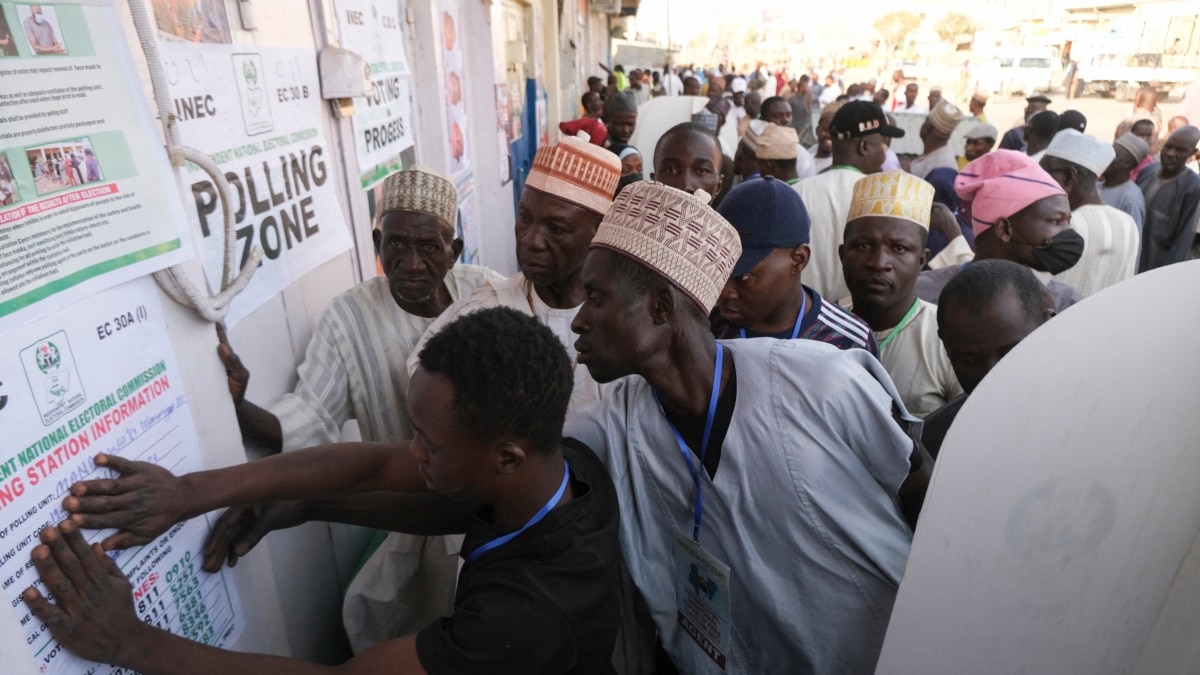This website uses cookies so that we can provide you with the best user experience possible. Cookie information is stored in your browser and performs functions such as recognising you when you return to our website and helping our team to understand which sections of the website you find most interesting and useful.


Voters in Nigeria are going to the polls Saturday to elect a new president.
President Muhammadu Buhari is stepping down after serving the maximum eight years or two terms as allowed under the country’s constitution.
About 90 million Nigerians are eligible to cast their ballots in the election in Africa’s most populous democracy that will also determine who will serve in the National Assembly.
Veteran candidates – Bola Tinubu, 70, a former Lagos governor from the ruling All Progressives Congress party, and former Vice President Atiku Abubakar, 76, from the main opposition Peoples Democratic Party – are being challenged by a third-party candidate, the Labour Party's Peter Obi, 61, who has support among young voters.
The outcome is “not as easy to predict as before,” Kano State College public affairs lecturer Kabiru Sufi, told Agence France-Press.
The election occurs as Nigeria is experiencing a cash shortage, widening poverty, high inflation and energy shortages.
In the past, Nigeria’s elections have been marred by electoral fraud and violence, but the presidential candidates promised this week to support a peaceful and transparent process.
Nigeria’s Independent National Electoral Commission has said the results of the election will be available in a few days. The commission has also introduced biometric voter IDs to help prevent fraud. The results will be transmitted electronically.
Some information in this report came from Reuters and Agence France-Presse.



 Africana55 Radio
Africana55 Radio 
